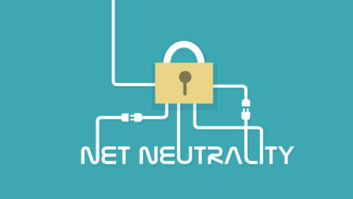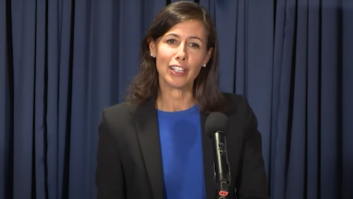CONCORD, Mass. — It seems like technology companies have become immensely powerful and seemingly accountable to no one.
In Radio Magazine Today, we’ve used a lot of space reviewing recent federal rollbacks of net neutrality. Is there anything to be done by the average citizen? According to an opinion piece in the Washington Post, there is — through internet service provided by local governments, which are directly accountable to citizens.
Mark Howell is the chief information officer for the town of Concord, Massachusetts, and he writes: “I’ve overseen the creation of a successful municipal broadband system by treating Internet service like what it really is — a public utility, like water and electricity. We’re providing residents with broadband Internet service that is inexpensive and reliable and respects net neutrality and privacy principles.”
So just how was this accomplished? Concord has had a municipal electric utility since the early 1900s.
“At our town meeting in 2009, citizens approved a plan for the utility to build a fiber-optic network because it needed upgrades to support such “smart grid” functions as advanced meter reading and load-management programs.” In 2013 the town meeting approved a plan to use that network to provide Internet service.
“Although we spent money to invest in this new infrastructure, once we started working on the system, we found that we could save money. We used our fiber-optic system to interconnect the schools, library, other town buildings and water system sites, saving tens of thousands of dollars a year on expensive and increasingly unreliable telephone lines. Once we started providing our own Internet service, the town saved even more.”
The city offers simple, flat-rate pricing without any of the “confusing packages” that customers of private telecoms have to deal with, and twice in four years Internet speeds have increased with no price hike.
“Our Internet service operates under rules set not by a for-profit company but by locally elected leaders and residents who volunteer to serve on the service’s board,” writes Howell. “We strictly abide by the principles of free speech and net neutrality, which means that all Internet traffic is treated equally. We also protect privacy by not sharing customer information with anyone.”
The city issued bonds to get started, and they will eventually be repaid by revenue from customers. Broadband revenue is covering the operating costs. The debt is financing the cost of adding about 300 customers per year, and according to Howell, “we project that by 2020, revenue will be covering these expansion costs as well. On top of that, there are the benefits that come with being a place that offers high-quality, high-speed Internet to homes and businesses.”











